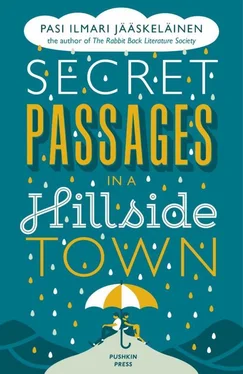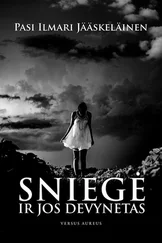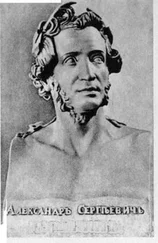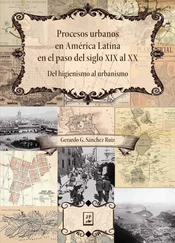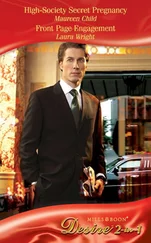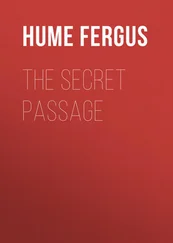As he was washing his hands, the unofficial version of publisher and parish-council member Olli Suominen scowled from the mirror. It was a sort of rough approximation of the businesslike person most people knew. His hair needed a trim. It was getting more grey in it. Hairs poked out of his nose. Razor stubble made him look like a gangster. The lines around his eyes were spreading like cracks in a marble statue. If Grandpa Notary was any indication, Olli would at least age gracefully. Grandpa went to his grave a charmer.
Before going back to bed he went to peek into his son’s room.
The boy was snuffling under the covers. All that was visible was an ear. Olli bent to look more closely. The ear was beautifully shaped and flawless, a masterpiece of creation, or maybe evolution. When he looked at that ear, he believed in God, for a little while anyway.
Olli adjusted the blanket and tiptoed out of the room. He realized he didn’t feel like sleeping, and went back downstairs. The house creaked and breathed as the night sucked the warmth out of the walls. Water murmured in the toilet. Something scratched in a corner. Did they have mice in the house?
There are all kinds of noises at night that you don’t notice during the daytime. Olli didn’t like them; they weren’t meant to be heard. He ought to be asleep right now, like everyone else. He felt guilty, but he stayed up, sitting on the sofa.
The afternoon before he had sent Greta a message recommending that they remove the references to the secret passages, to avoid confusing readers unnecessarily.
An answer came half an hour later.
The message didn’t take a position on the secret passages. Greta said she was in Jyväskylä and suggested that they meet the following day to discuss the manuscript and sign all the papers.
*
That Friday morning at the office passed slowly. They had agreed to meet at 2 p.m. in a restaurant downtown.
Olli was nervous. He couldn’t concentrate on anything. He knew of course that there was nothing to be nervous about. A publisher was going to meet with a successful author who happened to be an old friend of his. They had once long ago been children and been in love, and now they were middle-aged, practical, reserved professionals. They would both behave in a way appropriate to their age and station. They might look at their shared past in amusement, with a touch of nostalgia, but the long-lost games of childhood would be kept in their proper perspective.
Everything would no doubt go in a businesslike manner, but Olli’s mind kept coming up with alternative ways that the meeting might progress.
It was unavoidable, in a way, that his mind would eventually settle on a classic erotic fantasy, where one thing led to another and they ended up in a hotel room tearing each other’s clothes off.
When he imagined the famous author Greta Kara in front of him on a hotel bed, naked and lustful, he felt ill. His head started to buzz and his stomach clenched. He took an aspirin and was washing it down with coffee when Maiju strode into the room without knocking.
The coffee ended up on Olli’s shirt.
“Hang it all,” he said.
Maiju stood in the middle of the floor.
Maiju had once been a pleasantly restrained person. Lately, though, she had adopted a chaotic flair, like something out of a Fellini movie. She burst into rooms without warning, was rash and boisterous, started needless arguments and accused her co-workers of insulting her. One older author who came to visit the offices had found himself in the middle of one of her cinematic exercises and was so taken aback that it sent him into heart palpitations.
The hot coffee burned. Olli expressed his displeasure at Maiju’s behaviour and Maiju laughed, throwing her head back brazenly and answering him with a quote from La Dolce Vita :
“I am the first woman on the first day of creation. I am mother, sister, lover, friend, angel, devil, earth, home… But OK, I’ll try to keep my life force in check, to please you. Fellini would be good for you, by the way, Olli. You ought to try it.”
She was wearing a Fellini-style dress too showy for work. A Guide to the Cinematic Life discussed hundreds of different styles of dress categorized by director, genre and film. A couple of weeks earlier Maiju had enthused about finding a clothing shop where they sold cinematic attire for readers of the Guide .
“So here it is,” Maiju said. “ Emma Bunny’s Book about Boys and Girls . Hot off the press. But you’ve got coffee in your lap. Do you need a tissue? Or should I go buy you a new shirt? I’m on my way to lunch. I can pick one up while I’m out.”
Olli took his umbrella off the rack and went out himself. He wasn’t going to get any work done until this meeting was over, anyway.
The drizzle was turning to a real rain. Olli opened his umbrella and headed to Halonen, where he always bought his clothes. He held the umbrella in front of him so that the spot of coffee on his shirt wouldn’t show at a distance.
When he got to Compass Square he stopped. There was a pair of woman’s legs in front of him, jutting out from under a skirt.
They didn’t seem to want to go anywhere.
Olli tried to go around the legs, but then the person attached to them took hold of his umbrella and peeked under it.
“Is that you, Olli? It is, isn’t it?”
Olli tried to give a logical reply, but his thoughts escaped from his mouth in every direction.
Afterwards he remembered explaining why his shirt was dirty and blurting that unfortunately he couldn’t take Greta to dinner, urgent matters had come up, and they would have to take care of their business at the office.
And then the meeting was over and he was sitting at his desk in befuddlement.
Greta had just walked out of his office.
Olli only remembered her feet, clad in red high heels.
But at least the signatures on the contracts seemed to be in order.
GRETA CONTINUED WRITING. She sent new pages, and corrections whenever she noticed in her tour around Jyväskylä that places had changed, or disappeared altogether. The Magical City Guide was gradually growing into a complete book.
But the meeting fiasco put a damper on their Facebook conversations. The communication from Greta’s side shrank to scant greetings.
Notary Suominen in his portrait looked down at his grandson disapprovingly. Olli considered punishing himself by skipping the film club meeting, but then went after all, to avoid Aino, who had been bombarding him with questions about summer travel. He had a publishing house to run and a future best-seller under production. He didn’t know when he would have time for a holiday.
The film showing was Howard Hawks’s The Big Sleep . There were a lot of dead bodies. Olli couldn’t follow the plot. Apparently he wasn’t the only one. The people around him looked befuddled. He concentrated on admiring Lauren Bacall’s beauty and Humphrey Bogart’s cool confidence.
When the film ended, the identity of the murderer was still a mystery to Olli. He was thinking about other things. He didn’t need Philip Marlowe to tell him that Greta was seriously offended and that the fault lay with her editor, Olli Suominen.
Eventually he sent her a Facebook message explaining that he had felt ill on the day they were supposed to meet, and might have seemed “a little distant”.
Greta didn’t respond, but Olli kept trying. He had a responsibility as a publisher, which he was very conscious of. Greta Kara was important to Book Tower’s future, an author he had to hold on to by any means necessary.
One night Olli was reading through A Guide to the Cinematic Life and Greta’s new manuscript and pondering life. As he read, he wrote Greta a long message. It started with comments about publishing, but soon turned personal. He told her, for instance, that he suffered from slow continuum attachment and that his life was destined to stay the same to the very last:
Читать дальше
